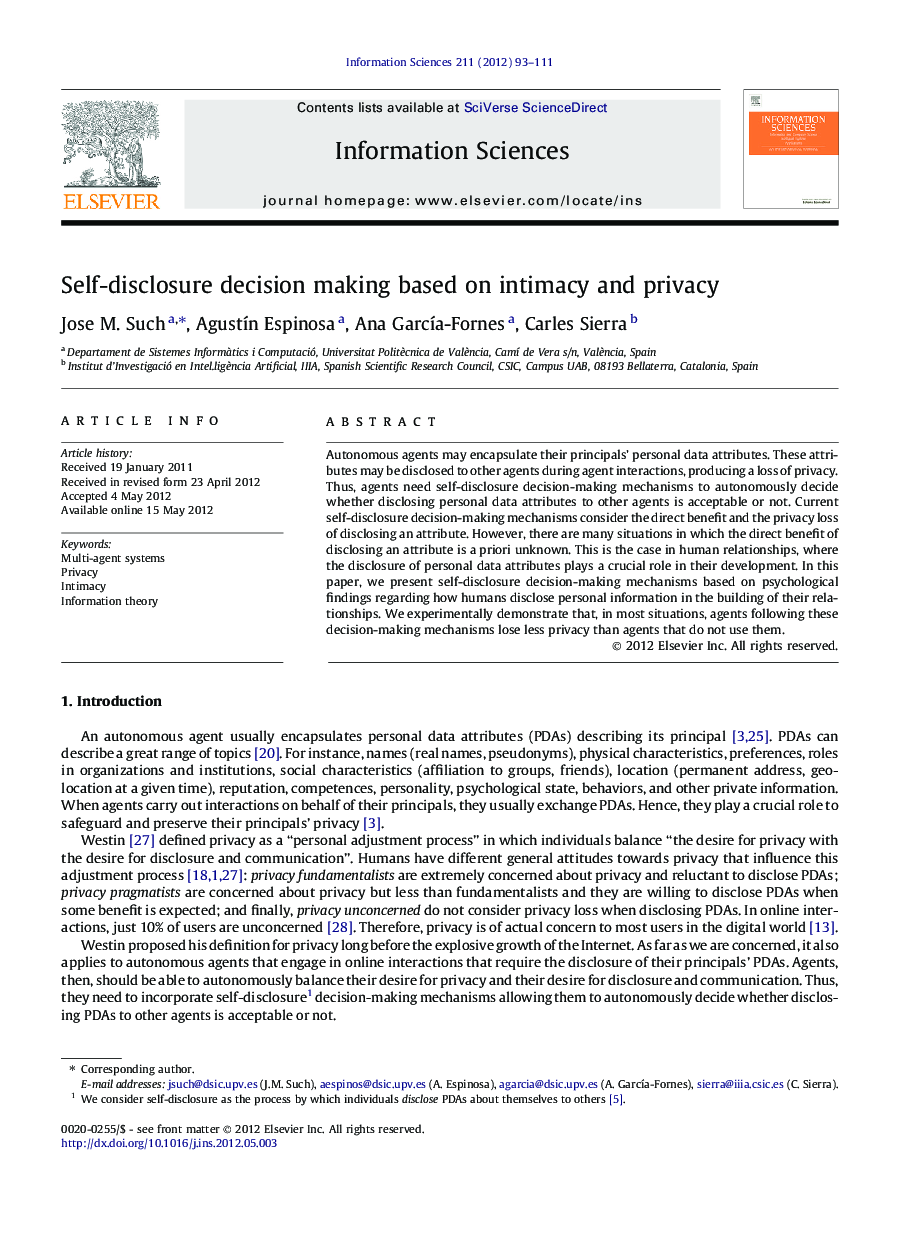| Article ID | Journal | Published Year | Pages | File Type |
|---|---|---|---|---|
| 393405 | Information Sciences | 2012 | 19 Pages |
Autonomous agents may encapsulate their principals’ personal data attributes. These attributes may be disclosed to other agents during agent interactions, producing a loss of privacy. Thus, agents need self-disclosure decision-making mechanisms to autonomously decide whether disclosing personal data attributes to other agents is acceptable or not. Current self-disclosure decision-making mechanisms consider the direct benefit and the privacy loss of disclosing an attribute. However, there are many situations in which the direct benefit of disclosing an attribute is a priori unknown. This is the case in human relationships, where the disclosure of personal data attributes plays a crucial role in their development. In this paper, we present self-disclosure decision-making mechanisms based on psychological findings regarding how humans disclose personal information in the building of their relationships. We experimentally demonstrate that, in most situations, agents following these decision-making mechanisms lose less privacy than agents that do not use them.
